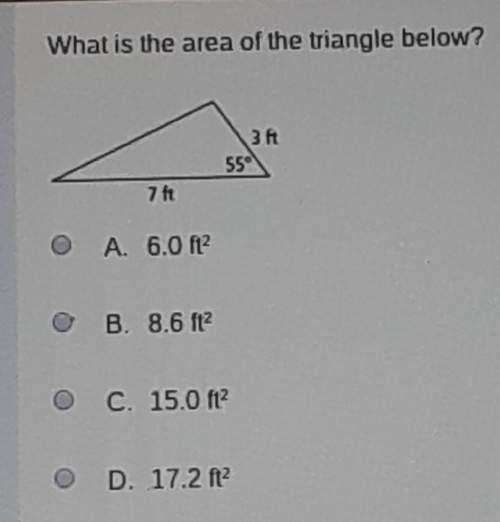
Mathematics, 24.06.2020 02:01 djemdn
Let: U = {a, b,c, d,e, f,g, h} A = {a, c,f} B = {b, c,f} C = {b, d,e, g,h} Determine the (A∩C). A. (A∩B) ∪ (A∩C) = m B. (A∩B) ∪ (A∩C) is the empty set.

Answers: 1


Other questions on the subject: Mathematics

Mathematics, 21.06.2019 23:10, robert7248
Aline has a slope of . which ordered pairs could be points on a parallel line? check all that apply. (-8, 8) and (2, 2) (-5, -1) and (0, 2) (-3, 6) and (6, -9) (-2, 1) and (3,-2) (0, 2) and (5,5)
Answers: 3

You know the right answer?
Let: U = {a, b,c, d,e, f,g, h} A = {a, c,f} B = {b, c,f} C = {b, d,e, g,h} Determine the (A∩C). A. (...
Questions in other subjects:




Mathematics, 20.03.2021 14:00



Computers and Technology, 20.03.2021 14:00

Geography, 20.03.2021 14:00


Advanced Placement (AP), 20.03.2021 14:00




